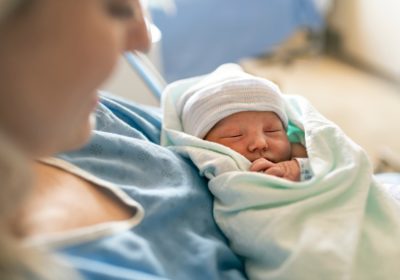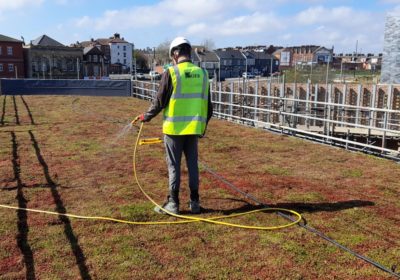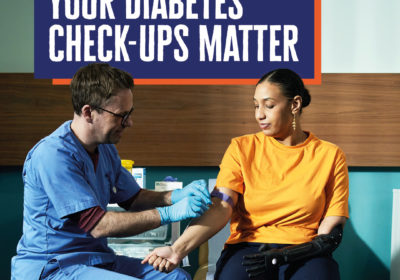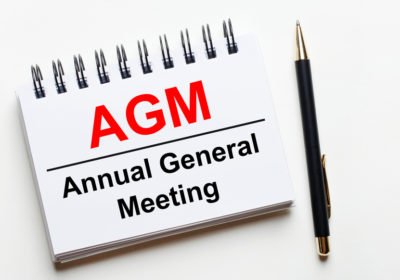Junior doctors have accepted the government’s pay offer by 66%, after the most prolonged industrial dispute in the NHS’s history.
Under the deal – which the Health Secretary agreed with BMA leadership within three weeks of coming into office – the government and junior doctors will work together to turn the health service around and resolve wider issues affecting the workforce, including training and rotational placements.
As Lord Ara Darzi set out in his probe into the NHS, this government inherited a broken NHS which is in a critical condition. This is a sentiment shared by doctors, and has been seriously compounded by the impact of strikes.
The deal comes days after the Prime Minister delivered a major speech on NHS reform, saying the government has a profound responsibility to do the hard work required to fix the NHS with long-term reform, and the NHS workforce will play an integral part in both designing and delivering the government’s 10-year health plan to deliver the necessary reform.
The price of not settling the pay dispute has seen catastrophic impacts not just on the country’s economy – with NHS strikes costing the taxpayer almost £1.7bn since April last year – but to patients and the nation’s health, with over 1.5m appointments cancelled. Ending this chaos is a necessary first step in turning around the NHS.
Doctors can now focus on treating their patients, and work with the government to recover and reform the NHS. The government has already taken action to remove red tape preventing general practices from hiring doctors – ensuring more than 1,000 newly qualified GPs can be recruited by the end of the year.
NHS patients will have earlier access to new treatments and the UK will become the home of cutting-edge health research after the launch of the Voluntary Scheme for Branded Medicine Pricing, Access and Growth (VPAG) Investment Programme last month – a joint public-private investment programme worth up to £400m.
The Darzi report has also been welcomed by NHS England and health organisations who have pledged to work closely with the government on its mission to rebuild the NHS.
The Health and Social Care Secretary made reaching a deal his top priority on coming into office, and first spoke with the BMA’s junior doctors committee on his first day, ahead of the offer being agreed within weeks.
Health and Social Care Secretary Wes Streeting said: ”We inherited a broken NHS, the most devastating dispute in the health service’s history, and negotiations hadn’t taken place with the previous ministers since March.
“Things should never have been allowed to get this bad. That’s why I made ending the strikes a priority, and we negotiated an end to them in just three weeks.
“I am pleased that our offer has been accepted, ending the strikes ahead of looming winter pressures on the NHS.
“This marks the necessary first step in our mission to cut waiting lists, reform the broken health service, and make it fit for the future.”
The cumulative impact of the uplifts mean a doctor starting foundation training in the NHS will see their basic pay increase to £36,600, compared to around £32,400 before the deal.
Recognising how disruptive the system of rotations can be for junior doctors, their partners and families, the department will lead a review of the current system, with the intention of reforming the number and frequency of rotations.
We will also be working with NHS England on a review of training numbers, both to address the training bottlenecks which already exist and the planned expansion of medical school places, to ensure patients have access to the junior doctors they need today, and the consultants and GPs they will need in the future.
Source: https://www.gov.uk/government/news/junior-doctors-accept-government-pay-deal
Response from the British Medical Association (BMA)
Junior doctors in England vote to accept pay offer
The BMA’s junior doctors committee (JDC) in England has accepted the Government’s pay offer, with 66% of junior doctors voting in favour of the deal.
Junior doctors have been in dispute over more than a decade of real-terms pay cuts since October 2022, during which time they have taken 44 days of strike action.
The pay uplift across these two years of the dispute will be 22.3% on average. This is made up of an additional average 4.05% for the pay year 2023/24 on top of the previously awarded average 8.8%, taking last year’s pay uplift to an average of 13.2% – this will be backdated to April 2023.
The rest of the uplift comes from the recommended pay award for 2024/25 announced in July, which gave junior doctors an average 8% increase across grades. Doctors remain 20.8% behind in real terms compared to a doctor in 2008.
The Government has also committed to work with the BMA to streamline the way in which junior doctors report additional hours they work, to ensure they are paid for the work they do.
There is also agreement to reform the current system of rotational training for junior doctors as well as reviewing the training bottlenecks that previous Governments have imposed, which has manufactured the shortage of consultant and GP doctors.
The junior doctors committee co-chairs, Dr Robert Laurenson and Dr Vivek Trivedi, said: “It should never have taken so long to get here, but we have shown what can be accomplished with our determination and with a government willing to simply sit down and talk realistically about a path to pay restoration. One strike was one strike too many.
“This deal marks the end of 15 years of pay erosion with the beginning of two years of modest above inflation pay rises. There is still a long way to go, with doctors remaining 20.8% in real terms behind where we were in 2008.
“Mr Streeting has acknowledged our pay has fallen behind and has talked about a journey to pay restoration. He believes the independent pay review body is the right vehicle for this, and if he is right then no doctor need strike over pay in future. However, in the event the pay review body disappoints, he needs to be prepared for the consequences.
“The resident doctors committee, as we will be called, will be using the next months to prepare to build on their success so that future cohorts of doctors never again need to see the kind of pay cuts we have. We thank all doctors who have seen us through to this point by standing on picket lines and fighting for their worth. The campaign is not over, but we, and they, can be proud of how far we have come.”
Outside the pay negotiations, the Government has agreed that from 18th September “junior doctors” across the UK will be known as “resident doctors” to better reflect their expertise. This follows a motion to the BMA’s annual policy making conference in 2023 when doctors voted in favour of a name change.
45,830 junior doctors in England took part in an online referendum between 19 August and 15 September, a turnout of 69%. 30,227 (66%) voted in favour of the offer. 15,596 (34%) voted against.
Details of the offer are available here.
The BMA is a professional association and trade union representing and negotiating on behalf of all doctors in the UK. A leading voice advocating for outstanding health care and a healthy population. An association providing members with excellent individual services and support throughout their lives.
Source: https://www.bma.org.uk/bma-media-centre/junior-doctors-in-england-vote-to-accept-pay-offer






